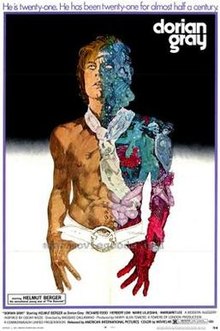Only a moron gives advice to a horse’s arse. Paris, 1934. Coloratura soprano Victoria Grant (Dame Julie Andrews) fails in her audition at a nightclub where she’s seen by gay cabaret singer Carole “Toddy” Todd (Robert Preston) who has been fired from his gig at a second-rate Chez Lui. When Victoria punches out Toddy’s bisexual hustler lover Richard (Malcolm Jamieson), Toddy comes up with what he considers to be an inspired idea: to pass Victoria off as a female impersonator. Victoria. Her male alter ego could be the toast of Paris and make a lot of money as gay Polish Count Victor Grazinski. It all goes well until Chicago gangster King Marchan (James Garner) turns up with his girlfriend Norma Cassady (Lesley Ann Warren) and falls for Victor, convinced he is a she … A woman pretending to be a man pretending to be a woman. A breathtaking blend of musical comedy, gender confusion, romance, slapstick, cross-dressing and cabaret, this loose remake of 1933 German screwball film Viktor Und Viktoria written by Hans Hoemburg and director Reinhold Schuenzel is a showcase for all writer/director Blake Edwards’ talents as well as providing wife Julie Andrews’ greatest role. Preston is a joy as her outrageous gay mentor in a warm, funny, generous performance and Garner has great fun subtly unravelling when his suspicions are proved happily correct in a scenario that takes pleasure in mocking his macho stance. Warren is also excellent as his Thirties moll with bodyguard Alex Karras surprising everyone by coming out. And for Edwards fans there’s the prospect of Graham Stark providing his customary support in a cast alight with provocation and tolerance proving sexual orientation really is not the issue as long as you’re getting some. What great characters! With songs by Leslie Bricusse and composer Henry Mancini there’s a lot to love in an astonishingly constructed entertainment. Never mind twist endings, the entire narrative is twisted in every possible direction. A modern classic. People believe what they see















































